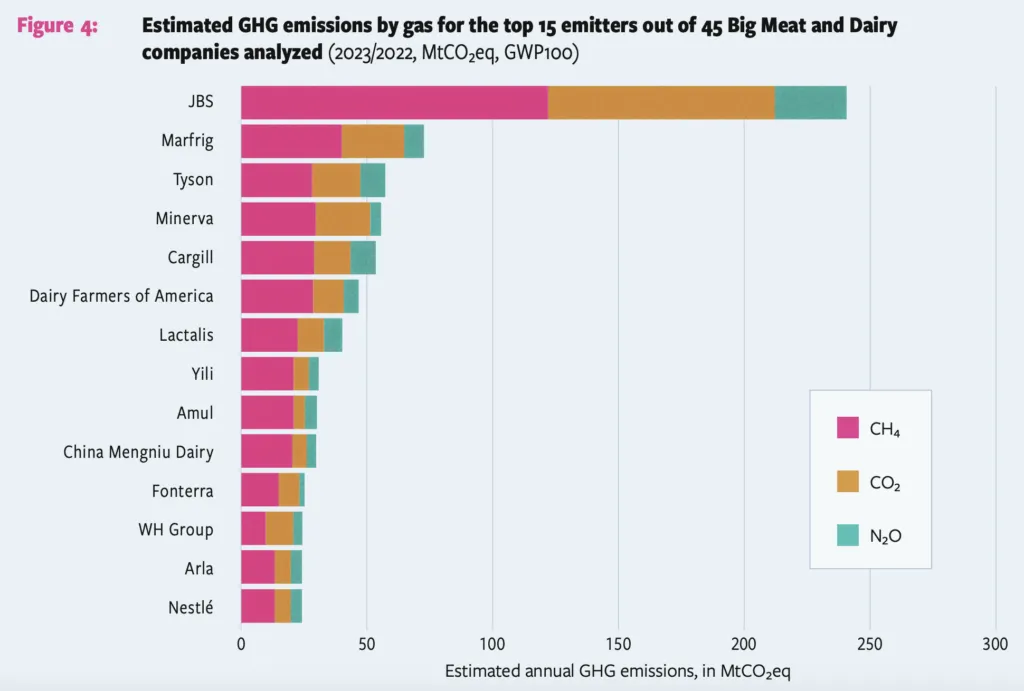The agricultural sector, particularly livestock production, is under increasing scrutiny for its significant contribution to global methane emissions. A recent report by the Dutch think tank Profundo reveals that the five largest meat and dairy producers—JBS, Marfrig, and Minerva in Brazil, and Tyson and Cargill in the U.S.—emit more methane annually than the five largest oil and gas companies combined. This finding underscores the urgent need for targeted interventions in the livestock sector to mitigate climate change.
Methane, a potent greenhouse gas, is released during the digestive process of ruminant animals such as cattle and sheep. Despite its significant impact on global warming, few countries have set specific targets to reduce emissions from livestock. The Profundo report highlights that the top 45 meat and dairy producers collectively emit more methane than the entire European Union. This stark comparison emphasizes the scale of the problem and the critical role that livestock production plays in global emissions.
The report also reveals that JBS, the world’s largest meat processing company, alone is responsible for more methane emissions than ExxonMobil and Shell combined. While JBS has set a target to reduce its emissions by 30 percent by the end of this decade, this goal only accounts for emissions from its operations and not from the cattle it processes. This limitation highlights a gap in corporate accountability and the need for more comprehensive emissions reduction strategies that include the entire supply chain.
The implications for the agriculture sector are profound. Investors and stakeholders must recognize the growing risks associated with high methane emissions from livestock production. As global efforts to curb methane emissions intensify, companies that fail to address this issue may face regulatory pressures, reputational damage, and financial losses. Conversely, those that proactively implement sustainable practices and set ambitious emissions reduction targets may gain a competitive edge and attract environmentally conscious investors.
The agricultural sector must also consider the broader implications of livestock production on climate change. A recent U.N. report finds that the world is not on track to meet the international goal of reducing methane emissions by 30 percent by the end of this decade. Additionally, a coalition of climate groups reports that while progress has been made in reducing methane emissions per animal, the pace of these reductions needs to more than double to meet international climate goals.
Many scientists argue that reducing meat consumption is essential to aligning the livestock industry with the Paris Agreement. A study involving over 200 leading climate and food experts concluded that the number of farmed animals must start decreasing immediately to meet global climate targets. This shift would require a concerted effort from governments, industries, and consumers to promote sustainable dietary practices and reduce reliance on meat and dairy products.
In conclusion, the findings from the Profundo report and other recent studies highlight the urgent need for the agricultural sector to address methane emissions from livestock production. Investors and stakeholders must recognize the risks and opportunities associated with this issue and support companies that are committed to sustainable practices. By taking proactive measures to reduce methane emissions and promote sustainable agriculture, the industry can contribute significantly to global efforts to mitigate climate change.

